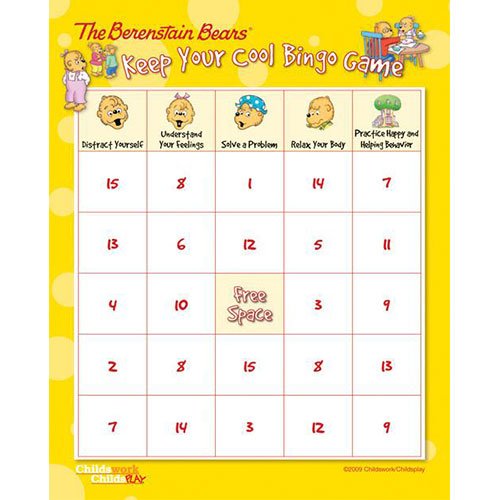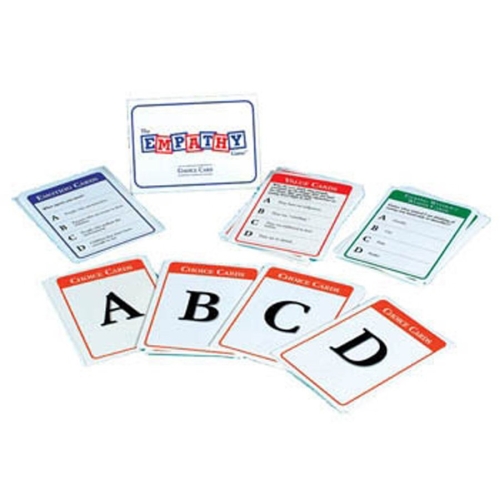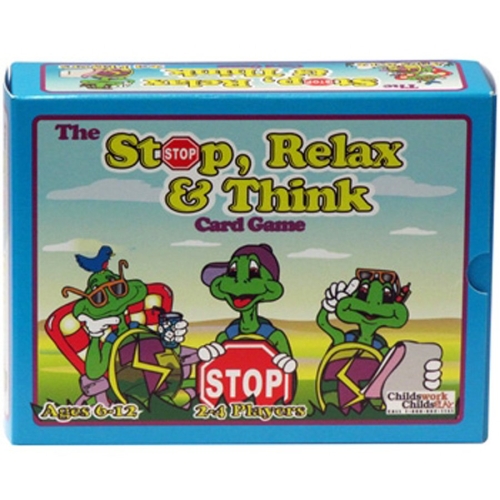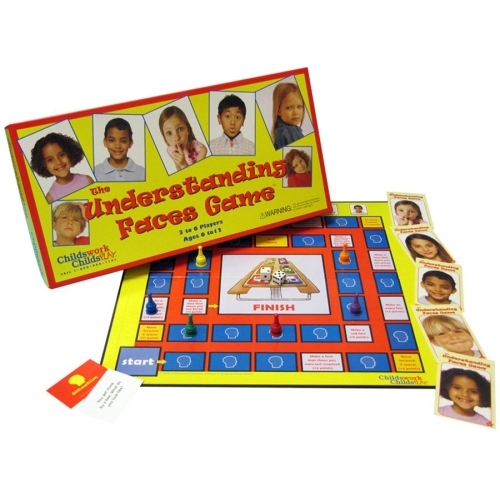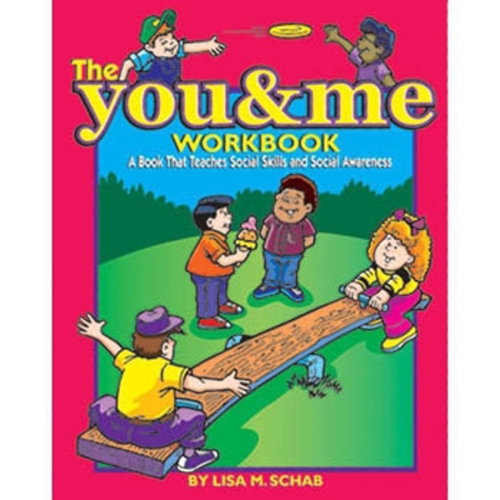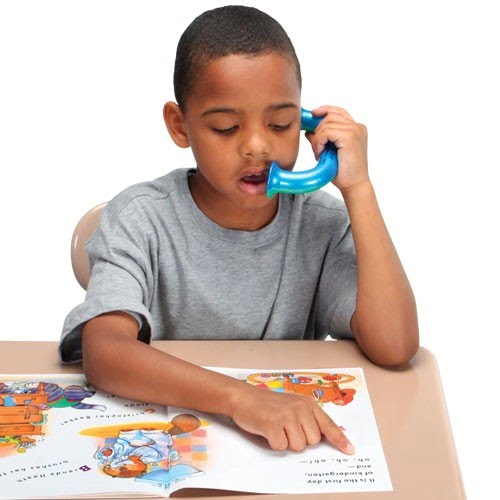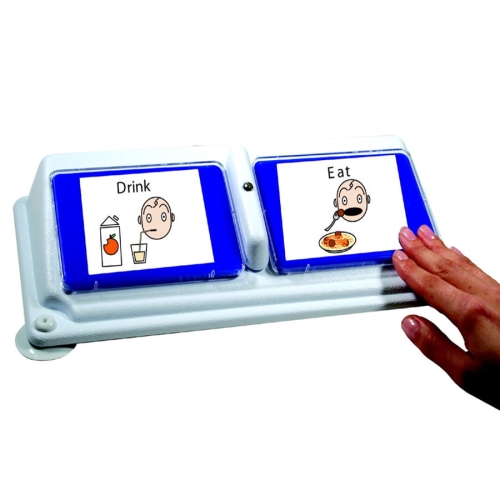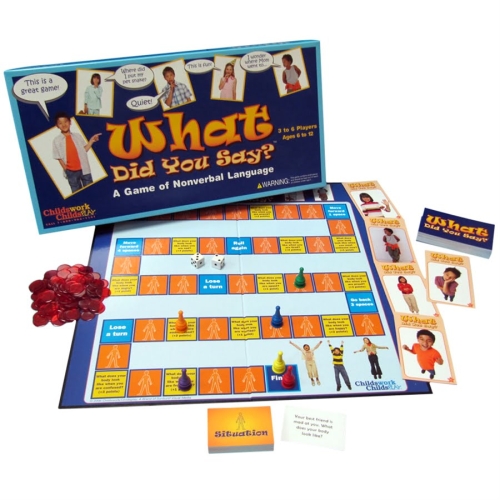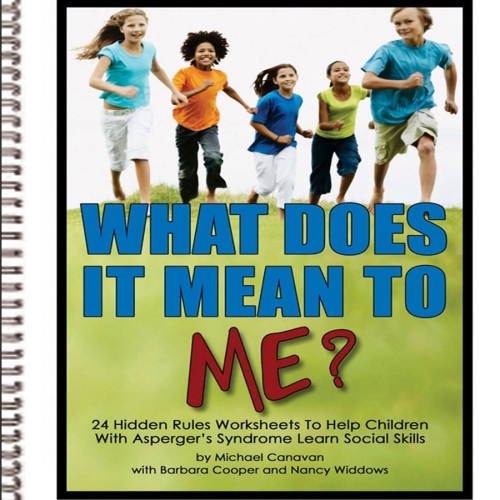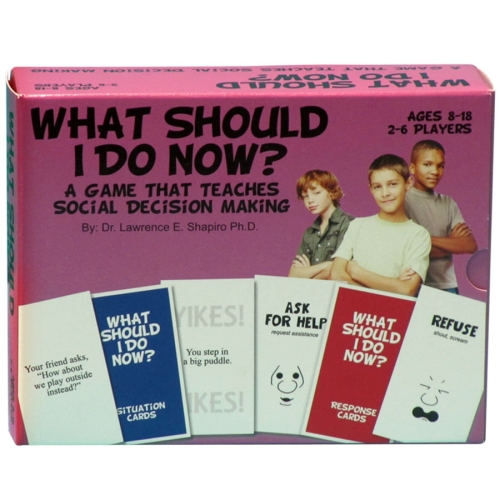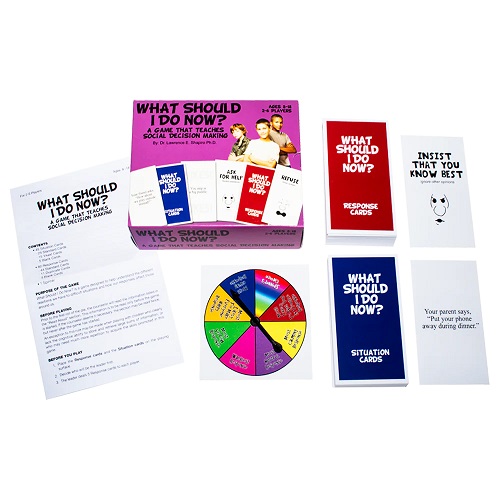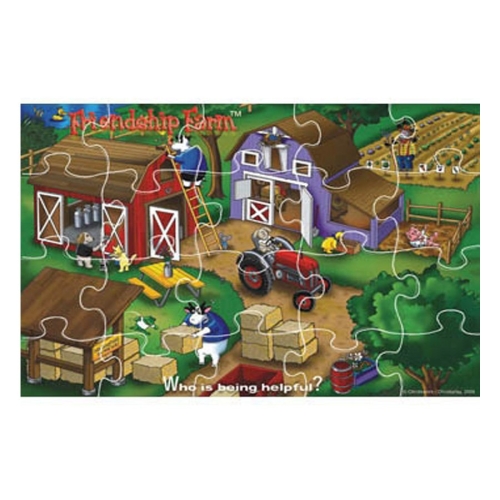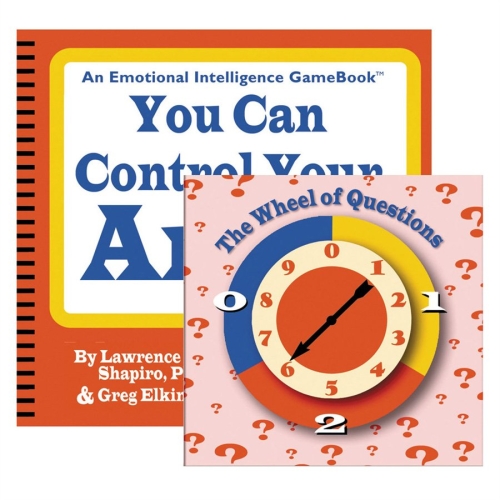-
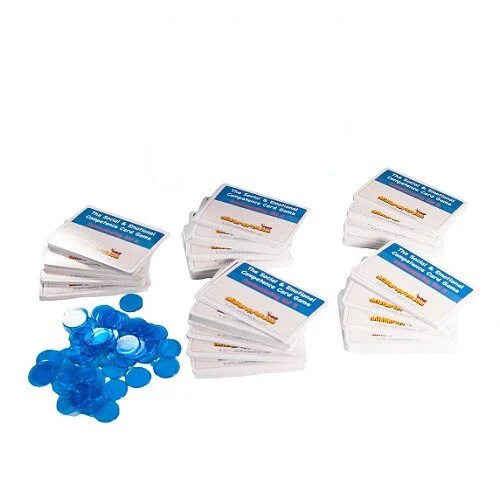 The goal is to educate players about a specific disorder and provide skills for managing the disorder. There are five decks of cards, one for each disorder: Anxiety, Depression ADHD, Asperger's, and Bipolar Disorder. Blank cards are included so that counselors/teachers can write their own questions or comments. The game includes 5 sets of cards (54 cards in each set), directions, and a bag of chips. Children with weak or emerging reading skills can have the cards read to them.
The goal is to educate players about a specific disorder and provide skills for managing the disorder. There are five decks of cards, one for each disorder: Anxiety, Depression ADHD, Asperger's, and Bipolar Disorder. Blank cards are included so that counselors/teachers can write their own questions or comments. The game includes 5 sets of cards (54 cards in each set), directions, and a bag of chips. Children with weak or emerging reading skills can have the cards read to them. -
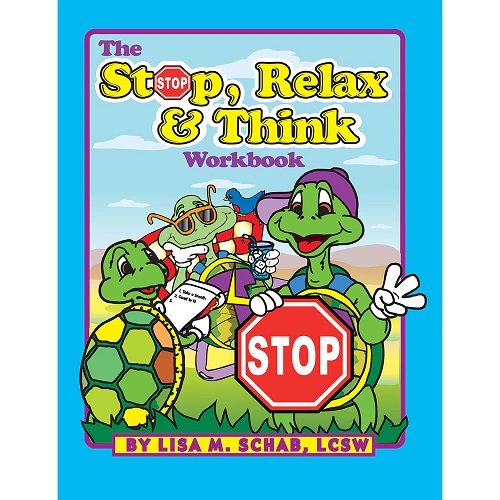 Written by Lisa M. Schab, LCSW. This workbook is designed to help children in general - and impulsive children especially - learn the cognitive, physical, and emotional skills they need to determine and use appropriate behavior across a variety of settings. This workbook contains more than 60 paper-and-pencil activities that teach children such important skills as thinking about consequences, staying focused and completing a task, engaging in quiet activities without disturbing others, and more. Each of the eight sections of the book contains fun activities, puzzles, and games that help reinforce these essential behavioral skills. 85 pages, spiral-bound.
Written by Lisa M. Schab, LCSW. This workbook is designed to help children in general - and impulsive children especially - learn the cognitive, physical, and emotional skills they need to determine and use appropriate behavior across a variety of settings. This workbook contains more than 60 paper-and-pencil activities that teach children such important skills as thinking about consequences, staying focused and completing a task, engaging in quiet activities without disturbing others, and more. Each of the eight sections of the book contains fun activities, puzzles, and games that help reinforce these essential behavioral skills. 85 pages, spiral-bound. -
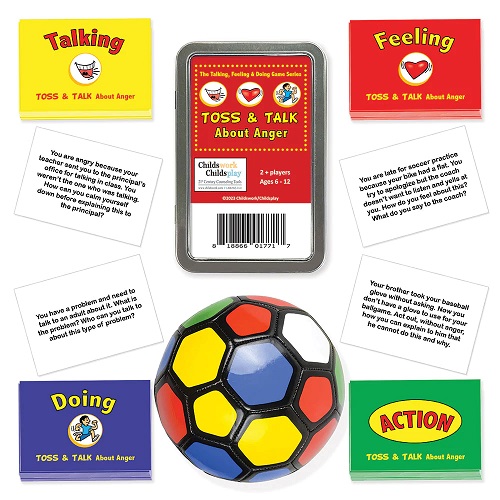 The Toss & Talk games are intended to help children reveal their concerns and conflicts to an adult who can provide both nurturance and guidance. You will know that the game has been successful when children begin to talk more freely about themselves and start to enjoy the interaction with a concerned adult. These games are theme-focused and are designed to focus on specific areas that are of concern to children.
The Toss & Talk games are intended to help children reveal their concerns and conflicts to an adult who can provide both nurturance and guidance. You will know that the game has been successful when children begin to talk more freely about themselves and start to enjoy the interaction with a concerned adult. These games are theme-focused and are designed to focus on specific areas that are of concern to children. -
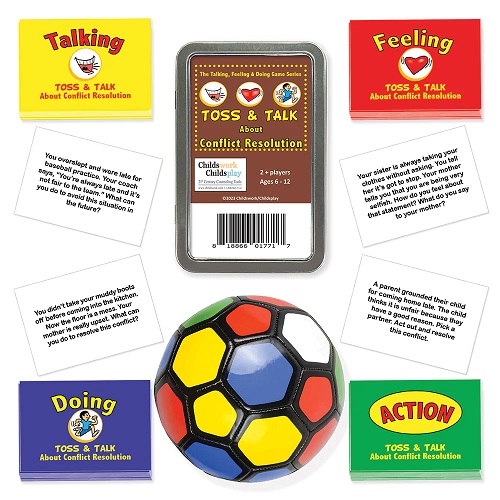 The Toss & Talk games are intended to help children reveal their concerns and conflicts to an adult who can provide both nurturance and guidance. You will know that the game has been successful when children begin to talk more freely about themselves and start to enjoy the interaction with a concerned adult. These games are theme-focused and are designed to focus on specific areas that are of concern to children.
The Toss & Talk games are intended to help children reveal their concerns and conflicts to an adult who can provide both nurturance and guidance. You will know that the game has been successful when children begin to talk more freely about themselves and start to enjoy the interaction with a concerned adult. These games are theme-focused and are designed to focus on specific areas that are of concern to children. -
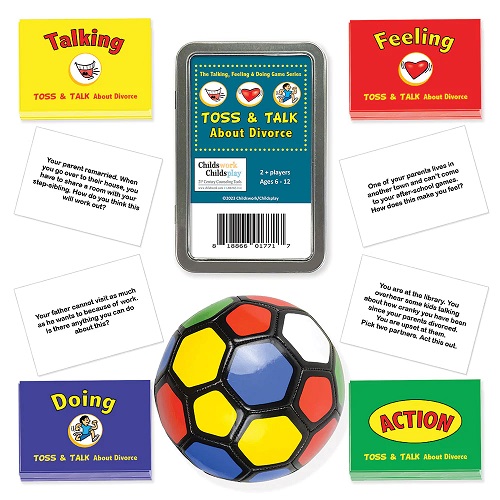 The Toss & Talk games are intended to help children reveal their concerns and conflicts to an adult who can provide both nurturance and guidance. You will know that the game has been successful when children begin to talk more freely about themselves and start to enjoy the interaction with a concerned adult. These games are theme-focused and are designed to focus on specific areas that are of concern to children.
The Toss & Talk games are intended to help children reveal their concerns and conflicts to an adult who can provide both nurturance and guidance. You will know that the game has been successful when children begin to talk more freely about themselves and start to enjoy the interaction with a concerned adult. These games are theme-focused and are designed to focus on specific areas that are of concern to children. -
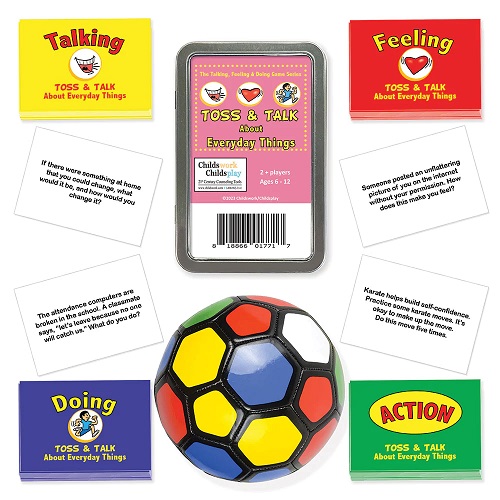 The Toss & Talk games are intended to help children reveal their concerns and conflicts to an adult who can provide both nurturance and guidance. You will know that the game has been successful when children begin to talk more freely about themselves and start to enjoy the interaction with a concerned adult. These games are theme-focused and are designed to focus on specific areas that are of concern to children.
The Toss & Talk games are intended to help children reveal their concerns and conflicts to an adult who can provide both nurturance and guidance. You will know that the game has been successful when children begin to talk more freely about themselves and start to enjoy the interaction with a concerned adult. These games are theme-focused and are designed to focus on specific areas that are of concern to children. -
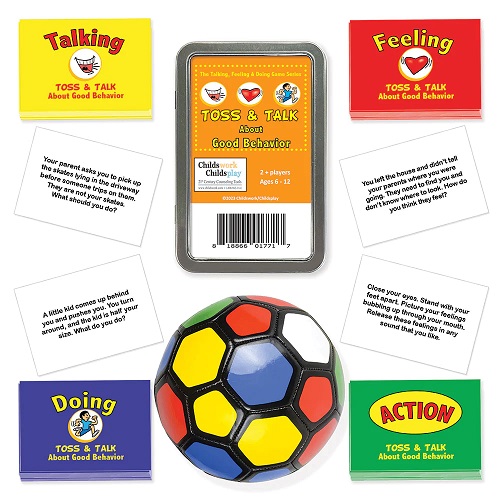 The Toss & Talk games are intended to help children reveal their concerns and conflicts to an adult who can provide both nurturance and guidance. You will know that the game has been successful when children begin to talk more freely about themselves and start to enjoy the interaction with a concerned adult. These games are theme-focused and are designed to focus on specific areas that are of concern to children.
The Toss & Talk games are intended to help children reveal their concerns and conflicts to an adult who can provide both nurturance and guidance. You will know that the game has been successful when children begin to talk more freely about themselves and start to enjoy the interaction with a concerned adult. These games are theme-focused and are designed to focus on specific areas that are of concern to children. -
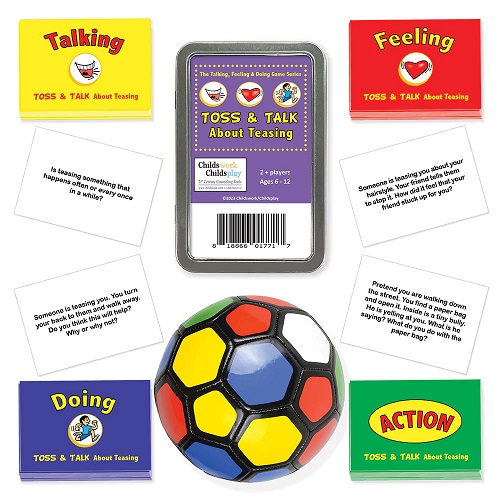 The Toss & Talk games are intended to help children reveal their concerns and conflicts to an adult who can provide both nurturance and guidance. You will know that the game has been successful when children begin to talk more freely about themselves and start to enjoy the interaction with a concerned adult. These games are theme-focused and are designed to focus on specific areas that are of concern to children.
The Toss & Talk games are intended to help children reveal their concerns and conflicts to an adult who can provide both nurturance and guidance. You will know that the game has been successful when children begin to talk more freely about themselves and start to enjoy the interaction with a concerned adult. These games are theme-focused and are designed to focus on specific areas that are of concern to children. -
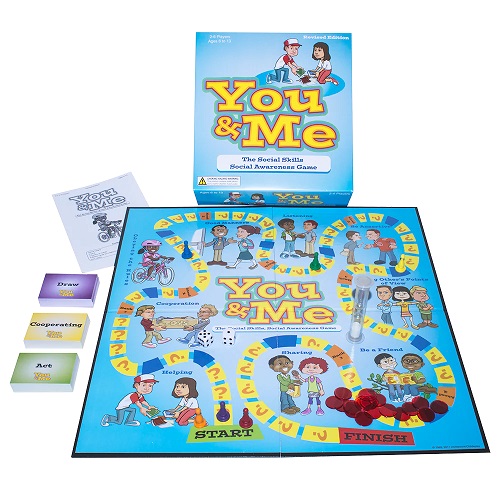 A cooperative board game that teaches day-to-day social skills and social awareness. Designed to help children become socially aware of the world they live in, as they build the social skills they need in everyday life: helping, sharing, being polite, cooperating, understanding different points of views, listening, following rules, acting assertively, and being a friend. Players work as a team, there are no individual winners.
A cooperative board game that teaches day-to-day social skills and social awareness. Designed to help children become socially aware of the world they live in, as they build the social skills they need in everyday life: helping, sharing, being polite, cooperating, understanding different points of views, listening, following rules, acting assertively, and being a friend. Players work as a team, there are no individual winners. -
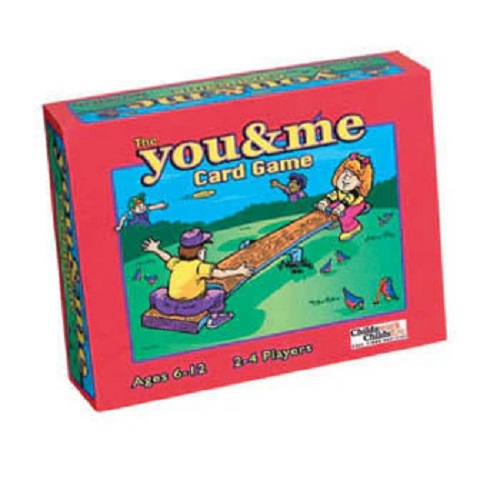 Created by Lawrence E. Shapiro, Ph.D. This card game is designed to simulate a standard 52-card deck - with a twist! Instead of numbered cards there are 13 different children and instead of the four traditional suits there are four social skills areas - Having Fun, Inviting a Friend, Talking, and Solving a Problem. As children play the game, they make up stories that demonstrate social awareness using the 13 different character cards. The instructions suggest four ways to play, but these entertaining cards can be used in dozens of other creative ways.
Created by Lawrence E. Shapiro, Ph.D. This card game is designed to simulate a standard 52-card deck - with a twist! Instead of numbered cards there are 13 different children and instead of the four traditional suits there are four social skills areas - Having Fun, Inviting a Friend, Talking, and Solving a Problem. As children play the game, they make up stories that demonstrate social awareness using the 13 different character cards. The instructions suggest four ways to play, but these entertaining cards can be used in dozens of other creative ways.

